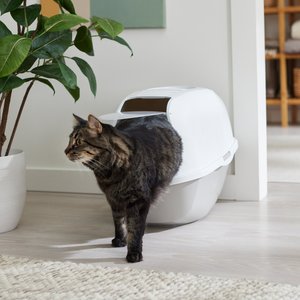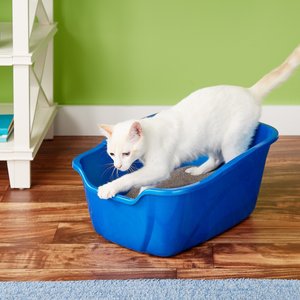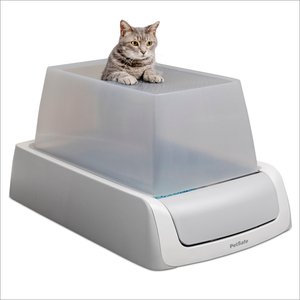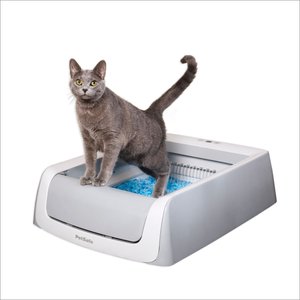Uncategorized
When is it Too Late to Neuter a Cat?
Neutering, also known as castration in males and spaying in females, is a common surgical procedure performed on cats to prevent them from reproducing. It offers numerous benefits, including controlling the pet population, reducing certain health risks, and managing behavioral issues. However, cat owners often wonder when is the right time to neuter their feline companions and if there is a point when it becomes too late. This article aims to address this important question.
Early Neutering
Early neutering refers to performing the procedure at a very young age, typically between 8 and 16 weeks. This approach has become increasingly popular due to its numerous advantages, including:
a. Population Control: Early neutering helps prevent unwanted litters and contributes to controlling the overpopulation of cats.
b. Behavior Modification: Neutering at a young age can mitigate undesirable behaviors, such as urine spraying and aggression, in male cats.
c. Health Benefits: It may reduce the risk of certain health issues, like testicular cancer in males and uterine infections in females.
Adult Neutering
Neutering can be safely performed on adult cats as well, and there is no set age at which it becomes “too late.” However, there are some considerations to keep in mind:
a. Behavior: Neutering adult cats may not always eliminate ingrained behaviors like spraying or aggression, although it can still help reduce them.
b. Health Benefits: Neutering can still provide health benefits to adult cats, such as reducing the risk of certain reproductive-related diseases.
c. Anesthesia and Recovery: Older cats may require more careful monitoring during anesthesia and a longer recovery period.
Senior Cats
Even senior cats can be neutered if there is a medical need or behavioral issue to address. However, the decision should be made in consultation with a veterinarian, taking into account the cat’s overall health and the specific reasons for neutering.
Special Cases
There are some situations where neutering may be recommended regardless of a cat’s age:
a. Medical Conditions: Neutering may be advised if a cat develops medical conditions related to the reproductive organs.
b. Unmanageable Behavior: In cases of extreme aggression, spraying, or other behavior issues, neutering may be considered as part of a behavior modification plan.
Consultation with a Veterinarian
The decision of when to neuter a cat should always be made in consultation with a qualified veterinarian. They can assess the cat’s individual health, behavior, and specific circumstances to determine the most appropriate timing for the procedure.
More information from a vet click here
Conclusion
In conclusion, there is no specific age at which it becomes “too late” to neuter a cat. The decision should be based on individual factors such as the cat’s age, health, behavior, and specific circumstances. Neutering can offer various benefits throughout a cat’s life, from preventing unwanted litters to reducing certain health risks. Therefore, it is essential for cat owners to work closely with their veterinarians to make informed decisions regarding the timing of neutering for their feline companions.
Understanding Sudden House Soiling in Cats: Causes and Solutions
Few things are more frustrating for cat owners than discovering that their beloved feline friend is suddenly peeing in the house. Cats are generally fastidious creatures, and using the litter box is second nature to them. So, when a well-trained cat starts urinating indoors, it’s essential to explore the reasons behind this sudden change in behavior. In this article, we will delve into the various factors that might lead to your cat peeing in the house all of a sudden and provide guidance on how to address these issues.
Watch what Jackson Galaxy says about this problem.
- Medical Issues
One of the most critical first steps when dealing with sudden house soiling in cats is to rule out any underlying medical problems. Urinary tract infections, bladder stones, diabetes, and kidney disease can cause discomfort and increased urination. When a cat associates the litter box with pain, they may seek out other places to relieve themselves. If your cat is peeing outside the litter box unexpectedly, consult your veterinarian to ensure there are no underlying health issues.
- Litter Box Problems
Cats are meticulous about their bathroom habits, and any issues with the litter box can lead to house soiling. Consider the following litter box-related factors:
- Cleanliness: Cats prefer clean litter boxes. If the box is dirty or hasn’t been scooped regularly, your cat might avoid it.
- Litter Type: Cats can be picky about the type of litter they use. If you’ve recently changed the litter brand or type, your cat might not like the new texture or scent.
- Location: The location of the litter box matters. It should be in a quiet, easily accessible area, away from the cat’s food and water bowls.
- Size and Type: Some cats prefer larger litter boxes, while others may favor covered ones. Experiment with different sizes and types to see what your cat prefers.
- Stress and Anxiety
Cats are highly sensitive to changes in their environment and routine. Stressors such as moving to a new home, introducing a new pet, or changes in the household can trigger sudden house soiling. Cats may urinate inappropriately as a way to mark their territory or as a response to the stress they are experiencing. Reducing stressors and providing a calm, consistent environment can help alleviate this behavior.
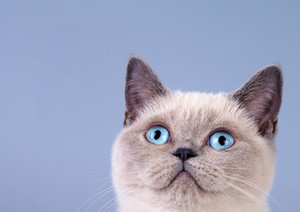
- Marking Behavior
Unspayed or unneutered cats are more likely to engage in marking behavior. Marking involves spraying urine to establish territory or communicate with other cats. If your cat is not fixed, consider getting them spayed or neutered to reduce this behavior. Even after the procedure, it may take some time for the marking behavior to subside.
- Social or Behavioral Issues
Cats can develop behavioral problems that manifest as house soiling. These issues can include aggression, fear, or conflicts with other pets in the household. Addressing the underlying behavioral problems through training and, if necessary, consulting with a professional animal behaviorist can help resolve these issues.
- Changes in Routine
Cats thrive on routine, and even minor changes can disrupt their bathroom habits. If your cat has started peeing in the house after a significant change in your schedule, such as a new job or travel, they may be reacting to the disruption. Gradually reintroduce a routine that includes regular feeding and playtime to help them adjust.
- Aging and Health
As cats age, they may develop physical or cognitive issues that can contribute to house soiling. Older cats might have arthritis or other ailments that make it difficult for them to access the litter box comfortably. Provide them with easy-to-reach litter boxes, softer bedding, and regular veterinary care to manage age-related changes.
Conclusion
Sudden house soiling in cats can be a challenging issue to tackle, but understanding the potential causes is the first step toward finding a solution. Whether it’s a medical problem, litter box issues, stress and anxiety, marking behavior, social conflicts, changes in routine, or age-related changes, addressing the underlying cause is crucial. Consult with your veterinarian to rule out medical issues, and then work on creating a comfortable, stress-free environment for your feline friend. With patience, consistency, and sometimes professional guidance, you can help your cat return to using the litter box as nature intended.
Learn more about how to help them and going back into the litter box check out this link
Understanding the Behavior: Why Is Your Male Cat Peeing Everywhere and Meowing Excessively?
As a cat owner, it’s both heartwarming and concerning when your feline companion exhibits unusual behaviors like peeing everywhere and meowing excessively. If you have a male cat that is displaying such behaviors, it’s essential to delve into the underlying causes to ensure his health and well-being. In this article, we’ll explore some of the common reasons behind these behaviors and offer insights into how you can address them.
- Territorial Marking
Male cats are prone to territorial marking, which involves spraying urine in various locations. This instinctual behavior is more prevalent in intact males, as it’s a way for them to establish their territory and communicate with other cats. Neutering your cat can significantly reduce this behavior, as it helps to curb their hormone-driven territorial tendencies. If your cat is already neutered and still marking, consulting a veterinarian is recommended to rule out any medical issues.
- Urinary Tract Issues
Frequent urination or urinating outside the litter box could be an indicator of urinary tract problems. Conditions such as urinary tract infections, bladder stones, or feline lower urinary tract disease (FLUTD) can cause discomfort and pain, leading to avoidance of the litter box. If you notice your cat straining while urinating, passing blood in the urine, or showing signs of pain, a prompt visit to the vet is essential.
- Stress and Anxiety
Cats are sensitive creatures that can experience stress and anxiety due to changes in their environment or routine. Events like moving to a new home, introducing a new pet, or changes in household dynamics can trigger excessive meowing and inappropriate urination. Providing a safe and comfortable space, using pheromone diffusers, and maintaining a consistent routine can help alleviate stress-related behaviors.
- Attention-Seeking Behavior
Cats are skilled at communicating their needs, and excessive meowing can be your cat’s way of seeking attention. If your cat associates meowing with getting your attention, he may continue the behavior to get what he wants, whether it’s food, playtime, or companionship. Establishing a regular play and interaction routine can help reduce attention-seeking meowing.
- Medical Conditions
Excessive meowing can sometimes indicate an underlying medical issue. Hyperthyroidism, cognitive dysfunction syndrome (similar to dementia in humans), or pain due to arthritis are examples of conditions that can cause changes in behavior, including increased vocalization. Regular veterinary check-ups are crucial to catch and address these conditions early.
- Hunger or Dietary Issues
Cats are creatures of habit, and they thrive on routine. If your cat is meowing excessively, he might be trying to communicate his hunger or dissatisfaction with his current diet. Ensuring your cat’s feeding schedule is consistent and providing high-quality nutrition can help alleviate this issue.
- Age-Related Changes
As cats age, their behavior and needs can change. Older cats might meow more due to sensory changes, cognitive decline, or discomfort associated with aging. Providing soft bedding, easy access to food and water, and regular veterinary care can support your senior cat’s well-being.
Conclusion
Understanding the reasons behind your male cat’s excessive meowing and inappropriate urination is crucial for his health and happiness. By considering factors such as territorial instincts, health issues, stress, attention-seeking, and age-related changes, you can tailor your approach to addressing these behaviors. Remember that each cat is unique, so a combination of patience, observation, and professional guidance from a veterinarian will help you navigate these challenges effectively.
Learn how to stop your cat male or female to peeing out side of the little box, check out this link
4 Good Maine Coon “Gentle Giant” characteristics
Maine Coon cats are known for their majestic appearance and charming personality. These large and long-haired felines are a popular breed among cat lovers, and for good reason. In this article, we’ll delve into the characteristics of a Maine Coon cat and explore why they make excellent pets.
Also known to be the “Gentle Giant” among cat breeds
One of the most distinctive features of a Maine Coon cat is its size. These cats are known for being one of the largest domestic cat breeds, with males weighing between 13-18 pounds on average and females weighing between 8-12 pounds. They have a long and sturdy body with well-developed muscles, making them a formidable presence. Their large size gives them a regal and majestic appearance that is often likened to a small lynx or bobcat.

Orange Maine Coon by Thirdman from Pexel
Maine Coon cats also have a distinctive coat that sets them apart. Their fur is long, dense, and waterproof, designed to withstand harsh weather conditions. They come in a variety of colors and patterns, including tabby, solid, and tortoiseshell, with their most common coat color being brown tabby. Their fluffy tail, known as a “bushy” tail, is one of their signature features, which they use for balance and warmth.
In terms of personality, Maine Coon cats are known for their friendly and outgoing nature. They are often described as gentle giants, as they are known to be affectionate and good-natured. They are highly social and enjoy spending time with their human companions, often following them around the house and seeking attention. They are also known to be excellent “lap cats,” enjoying snuggles and cuddles with their owners.
Maine Coon cats are also known for their intelligence and playfulness. They are curious and enjoy exploring their environment, often engaging in playful antics such as chasing toys or playing hide-and-seek. They are also known to be skilled hunters due to their natural instincts, and they may display playful stalking behavior. Many Maine Coon cats are known to play fetch and learn tricks, making them excellent companions for those who enjoy interactive play.
Another noteworthy characteristic of Maine Coon cats is their vocalization. They are known to be quite talkative and will often communicate with their owners through a variety of meows, chirps, and trills. This can make them excellent companions for those who enjoy conversing with their feline friends.
Maine Coon cats are also known for their loyalty and devotion to their human companions. They are known to form strong bonds with their owners and are often seen as affectionate and loyal pets. They are known to be good with children and other pets, making them a great addition to a family.

Senior maine-coon cat watching. Picture by Pixabay
In terms of grooming, Maine Coon cats require regular grooming due to their long coat. They should be brushed at least once a week to prevent matting and keep their fur healthy and tangle-free. They may also need periodic dental care, nail trimming, and ear cleaning to maintain their overall health and hygiene.
In conclusion, Maine Coon cats are a unique and special breed with their impressive size, luxurious coat, friendly personality, and intelligence. From their regal appearance and gentle nature to their playful demeanor and vocalization, Maine Coon cats make wonderful pets for those who are looking for a loyal and affectionate feline companion. If you’re considering adding a feline friend to your family, a Maine Coon cat could be a perfect choice!
Note I have a maine coon cat.

Get Cat Language Bible
What is spaying?
Spaying is a surgical procedure performed on female animals, including cats, dogs, and other mammals, to remove their reproductive organs. The term “spaying” specifically refers to the removal of the ovaries and uterus, rendering the female animal unable to reproduce.
Spaying is typically conducted by a licensed veterinarian under general anesthesia. The procedure involves making a small incision in the abdomen to access the reproductive organs, which are then carefully removed. The incision is sutured, and the animal is closely monitored during the recovery period.
Benefits of Spaying Female Cats:
- Prevention of Unwanted Litters: Spaying eliminates the possibility of pregnancy in female cats. This is particularly important if you don’t intend to breed your cat or if she has access to intact males in the area.
- Elimination of Heat Cycles: Female cats experience heat cycles, also known as estrus, during which they become sexually receptive. These cycles can be accompanied by behaviors like increased vocalization, restlessness, and attempts to escape. Spaying eliminates these heat cycles, preventing the associated behavioral changes.
- Reduction of Mammary Cancer Risk: Spaying significantly reduces the risk of mammary (breast) cancer in female cats. The procedure is most effective when performed before the first heat cycle, providing the greatest protection against this type of cancer.
- Prevention of Uterine Infections: Spaying eliminates the risk of pyometra, a potentially life-threatening infection of the uterus that commonly affects older, unspayed female cats. This serious condition requires emergency medical treatment and can be avoided through spaying.
- Decrease in Roaming and Spraying Behavior: Unspayed female cats may exhibit increased roaming behavior and urine marking during heat cycles. Spaying reduces the likelihood of these behaviors, making your cat less prone to escaping and spraying to attract males.
It’s important to note that spaying is a permanent procedure, and once performed, the female cat will no longer experience heat cycles or be able to reproduce. Spaying can be done at any age, but it is often recommended to have the procedure done before the first heat cycle, typically around 4 to 6 months of age.
If you are considering spaying your female cat, it is best to consult with a veterinarian who can provide personalized advice based on your cat’s health and circumstances. Spaying not only helps prevent unwanted litters but also contributes to the long-term health and well-being of your feline companion.

Get Cat Language Bible
What is Neutering?
Neutering is a surgical procedure performed on male animals, including cats, dogs, and other mammals, to remove their reproductive organs. The term “neuter” specifically refers to the castration of male animals. The surgical procedure involves the removal of the testes, which are responsible for producing sperm and the male hormone testosterone.
Neutering is typically performed by a licensed veterinarian under general anesthesia. The procedure is relatively quick and carries minimal risks. It helps prevent unwanted litters, eliminates the risk of testicular cancer, and reduces the occurrence of certain behavioral and health issues in male cats.
Benefits of Neutering Male Cats:
- Prevents Unwanted Litters: Neutering your male cat helps control the pet population by eliminating the ability to father kittens. This is particularly important if your cat has access to outdoor areas and encounters other unaltered cats.
- Reduces Roaming and Spraying: Intact male cats have a strong instinct to roam in search of mates. Neutering reduces this urge, making them less likely to escape and wander. It also helps decrease territorial marking behaviors, including spraying urine to mark their territory.
- Minimizes Aggressive Behavior: Male cats that are not neutered are more prone to aggression and territorial behavior, especially when competing for mates. Neutering can help reduce these aggressive tendencies, making them more docile and sociable.
- Reduces the Risk of Testicular Cancer: Neutering eliminates the risk of testicular cancer, a potentially life-threatening condition that can affect unneutered male cats.
- Decreases the Risk of Certain Health Issues: Neutered male cats are less likely to develop certain health issues, such as prostate problems and certain types of urinary tract infections.
It’s important to note that neutering is a permanent procedure, and once performed, the male cat will no longer be able to reproduce. Neutering can be done at any age, but it is often recommended to have the procedure done when the cat is young, around 4 to 6 months old, before sexual maturity.
If you are considering neutering your male cat, it is best to consult with a veterinarian who can provide guidance specific to your cat’s health and circumstances. Neutering not only helps prevent unwanted litters but also contributes to the overall well-being of your feline companion.

Get Cat Language Bible
Why do cats meow in the morning
Cats are known for their unique behaviors, and one of the most common ones is meowing. Meowing is how cats communicate with humans, and it can be a way for them to express their needs, desires, and emotions. One of the most common times when cat’s meow is in the morning, and this behavior can sometimes be quite perplexing for cat owners. In this article, we will explore the reasons why cat’s meow in the morning and what cat owners can do to address this behavior.
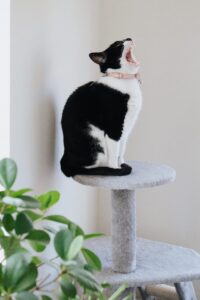
Photo by Anete Lusina from Pexels
Reasons Why Cat’s Meow in the Morning
Hunger
One of the most common reasons why cat’s meow in the morning is because they are hungry. Cats are natural hunters, and they are most active during the early morning and late evening hours. This means that your cat’s internal clock may be telling them it’s time to hunt and eat. If your cat’s food bowl is empty, they may meow to get your attention and remind you that it’s time to fill it up.
Attention-Seeking
Cats are social creatures, and they crave attention and affection from their human companions. If your cat is meowing in the morning, it could be a sign that they are seeking your attention. They may want to play, be petted, or simply spend time with you. By meowing, they are trying to get your attention and engage with you.
Routine
Cats are creatures of habit, and they thrive on routine. If you have a set routine in the morning, such as waking up at the same time every day, your cat may have gotten used to this routine and expect you to get up and start your day at the same time. If you deviate from this routine, your cat may meow to remind you that it’s time to start your day.
Boredom
Cats are natural explorers and hunters, and they need mental and physical stimulation to stay healthy and happy. If your cat is meowing in the morning, it could be a sign that they are bored and looking for something to do. They may be asking you to play with them or provide them with new toys and activities to keep them entertained.
Medical Issues
If your cat suddenly starts meowing more than usual in the morning, it could be a sign of an underlying medical issue. Cats are masters at hiding their pain, and meowing excessively could be their way of telling you that something is wrong. If your cat’s meowing is accompanied by other symptoms, such as lethargy, loss of appetite, or vomiting, it’s important to take them to the vet for a check-up.
To learn more on this and other cat communications check out Cat Language Bible
To read a review of the Cat Language Bible click here.
This content may contain links to products, software and services. Please assume all such links are affiliate links which may result in my earning commissions and fees.
Your Sensitive Cat And Litter Box Problems
A cat’s senses are how the animal relates to the world around it. In many ways, the senses of a cat are much more acute than ours and this can often be at the root of litter box problems. When your cat begins to urinate, or even defecate, on the floor or furniture, it’s time to get to the root of the problem as quickly as possible. Never punish the cat for his or her transgressions – your pet will be unable to associate the accident with the litter box, and dragging the cat to the litter box after a scolding or spanking will only cause further litter box problems.
Your Cat’s Senses
Cats are naturally very clean animals, so when your companion begins using the home as a litter box, a serious problem exists. Once your pet has been found to be healthy, and not suffering from a medical condition that is causing incontinence, take into consideration your cat’s sensitivity.
- Cats have a sense of smell that is about 15 times stronger than yours is. Imagine how a litter box that may smell rather sour to you must smell to your cat. Clumps of fecal material and urine-soaked litter will cause most cats to eliminate elsewhere. The odor of ammonia is sharp and irritating to humans, and is even more so to cats. The litter box should be cleaned religiously; using clumping litter makes this easier. Remove stools and wet litter two times a day. Boxes using clumping litter can go 3 weeks before actual changes (you will be adding more litter after removing the clumps), but a box with ordinary litter should be changed, and the box washed, 2 times every week.
- Smell also plays a part in litter box avoidance if your cat simply detests the smell of the litter, even if it’s completely clean. This usually comes about when a new litter is introduced. Try adding a bit of the new litter to the old to accustom the cat to the change.
- The tactile sensations of cats are highly developed, and this includes the cat’s feet. Litter that feels ‘funny’ to cats will be avoided. Instinctively, cats are drawn to a litter that feels like soft sand or soil. Choose a litter that most closely mimics nature.
- Everyone knows that cats have an acute sense of hearing. Mechanized litter boxes can produce sounds that are frightening to a cat. Self-cleaning boxes are often avoided just because of the clatter they produce. It may take some time and patience to get your cat used to motorized litter boxes, and you may have to return to an ordinary box if your cat cannot adjust.
Putting yourself in your cat’s place when litter box problems arise can make it easier to solve the problem and make both of you happier and more relaxed.
Learn how to stop your cat from peeing out of the litter box check out this ebook.
An interesting article to read about litter boxes click here.
Covered vs Uncovered Litter Boxes
Cats are adorable and lovely creatures, but their litter boxes can be a nuisance if not taken care of properly. A litter box is an essential item for any cat owner, but there are various types of litter boxes available in the market. Among these types, the covered and uncovered litter boxes are the most popular.
A covered litter box, as the name suggests, has a cover on top of the box, while an uncovered litter box is an open box without a cover. Both have their advantages and disadvantages, and choosing the right one can be challenging for pet owners. In this article, we will discuss the differences between covered and uncovered cat litter boxes and help you make an informed decision.
Covered Cat Litter Boxes
Covered cat litter boxes are enclosed boxes that have a lid or cover on top of the box. These types of litter boxes are designed to provide privacy to cats and minimize the spread of litter and odor around the house. They come in different sizes, shapes, and styles, and some even have a built-in filter to control odor.
Advantages of Covered Cat Litter Boxes
Minimizes Litter Tracking: Covered cat litter boxes can minimize litter tracking around the house. The cover prevents litter from scattering outside the box when cats dig and cover their waste.
Reduces Odor: Covered litter boxes come with a cover that traps odor inside the box. This can help to reduce the smell of cat waste and keep the area around the litter box smelling fresh.
Provides Privacy: Covered cat litter boxes offer privacy to cats, which can be beneficial for shy cats or those that prefer to use the litter box in peace.
Disadvantages of Covered Cat Litter Boxes
Hard to Clean: Covered cat litter boxes are often difficult to clean due to their design. The cover can make it difficult to scoop out waste, and it can be challenging to reach all the corners of the box.
Traps Odor: While covered litter boxes do reduce odor, they can also trap odors inside the box, making it difficult to remove the smell even after cleaning.
Not Suitable for Large Cats: Covered cat litter boxes may not be suitable for large cats or cats with mobility issues. The entrance may be too small for some cats to enter and exit comfortably, and the cover can make it difficult for cats with limited mobility to use the box.
Uncovered Cat Litter Boxes
Uncovered cat litter boxes are open boxes without a cover or lid. They are the most common type of litter box and are available in various sizes and styles.
Advantages of Uncovered Cat Litter Boxes
Easy to Clean: Uncovered cat litter boxes are easy to clean because they are open and accessible. It is easy to scoop out waste and clean all corners of the box.
Suitable for Large Cats: Uncovered cat litter boxes are suitable for larger cats as they have ample space for the cat to enter and exit the box comfortably.
Less Expensive: Uncovered cat litter boxes are generally less expensive than covered litter boxes. This makes them a more cost-effective option for cat owners.
Disadvantages of Uncovered Cat Litter Boxes
Litter Tracking: Uncovered cat litter boxes can cause litter tracking around the house. Cats can scatter litter outside the box when digging and covering their waste.
Odor Spread: Uncovered litter boxes can spread odor around the house as there is no cover to contain the smell.
Less Privacy: Uncovered cat litter boxes provide less privacy to cats as they are open and exposed. This can be an issue for shy cats or those that prefer to use the litter box in peace.
Automatic or easy to clean litter boxes
Note there are covered and uncovered litter boxes that requires less work like scooping out the litter.
Which Litter Box You Choose?
Choosing between a covered and uncovered cat litter box depends on your cat’s personality and your living situation. I would suggest having both to find out which one your cat likes.
This content may contain links to products, software and services. Please assume all such links are affiliate links which may result in my earning commissions and fees.
Is Your Cat Marking Your Home?
The smell of ordinary cat urine is strong enough, but when a cat spray marks, the odor will be even more overpowering and unpleasant. Unlike urination, which does leave a message for other cats to an extent, spray marking is more like a billboard with lights. The whole reason for marking is to inform other cats of a particular cat’s presence. And, while urine is simply the waste that has been filtered out by the kidneys, marking includes other bodily chemicals with information about sex, health, and undoubtedly other important cat messages.
Unlike normal urination, which is made by the cat squatting down, spray marking is done when the cat is standing and the deposit will be made on a vertical surface such as a door frame or the front of a sofa or chair. The cat will back up to the chosen area, and wiggle its tail as it delivers the spray behind it. The volume of the spray is much less than is produced when the cat urinates.
Stopping Spray Marking
While some female cats will spray mark, the main culprits are intact males. Spray marking is used not only to deliver some information about the sprayer, but also to mark territory, which is especially important in the wild where hunting grounds must be protected. This behavior is also much more common in homes where there are several cats, and an order of dominance constantly needs to be established. However, there are steps you can take to minimize the chances of spray marking.
- If you have a multi-cat household, provide several litter boxes, rather than just one, there should be a box for each cat, and a spare.
- All litter boxes should be kept completely clean. Feces and clumps of urine-soaked litter should be removed daily and the litter changed completely once a week.
- Block off the area being spray marked. The cat will usually return to the same spot periodically to ‘renew’ the fragrance, so denying access can help to eliminate the problem.
- Use an enzyme cleaner to remove the spray. You may have to apply it several times to remove all the smell.
- Neutering both toms and tabbies can help to stop spraying behavior.
Stress can also trigger spray marking, so address any issues that may be making your cat, or cats, nervous.
Learn how to stop your cat from marking your home check out Cat Spraying No More
Why do cat’s mark your territory?
Marking territory with urine is your cat’s way of dealing with stress. They feel anxious and are trying to relieve their anxiety by staking out their boundaries. Leaving their urine scent is the most emphatic way to say, “I’m stressed.” tract problems don’t clear up by themselves and require urgent attention. With more information found from the ASCPA and other online professional services

